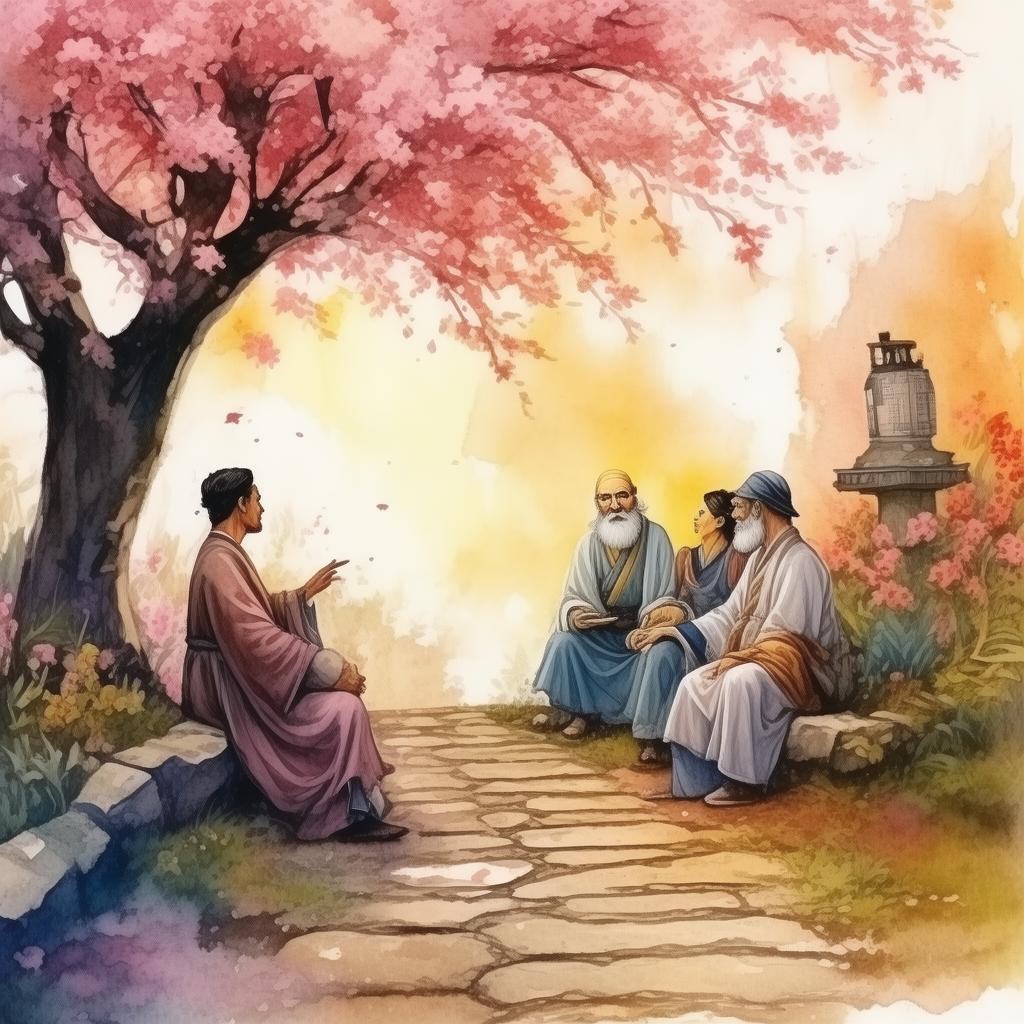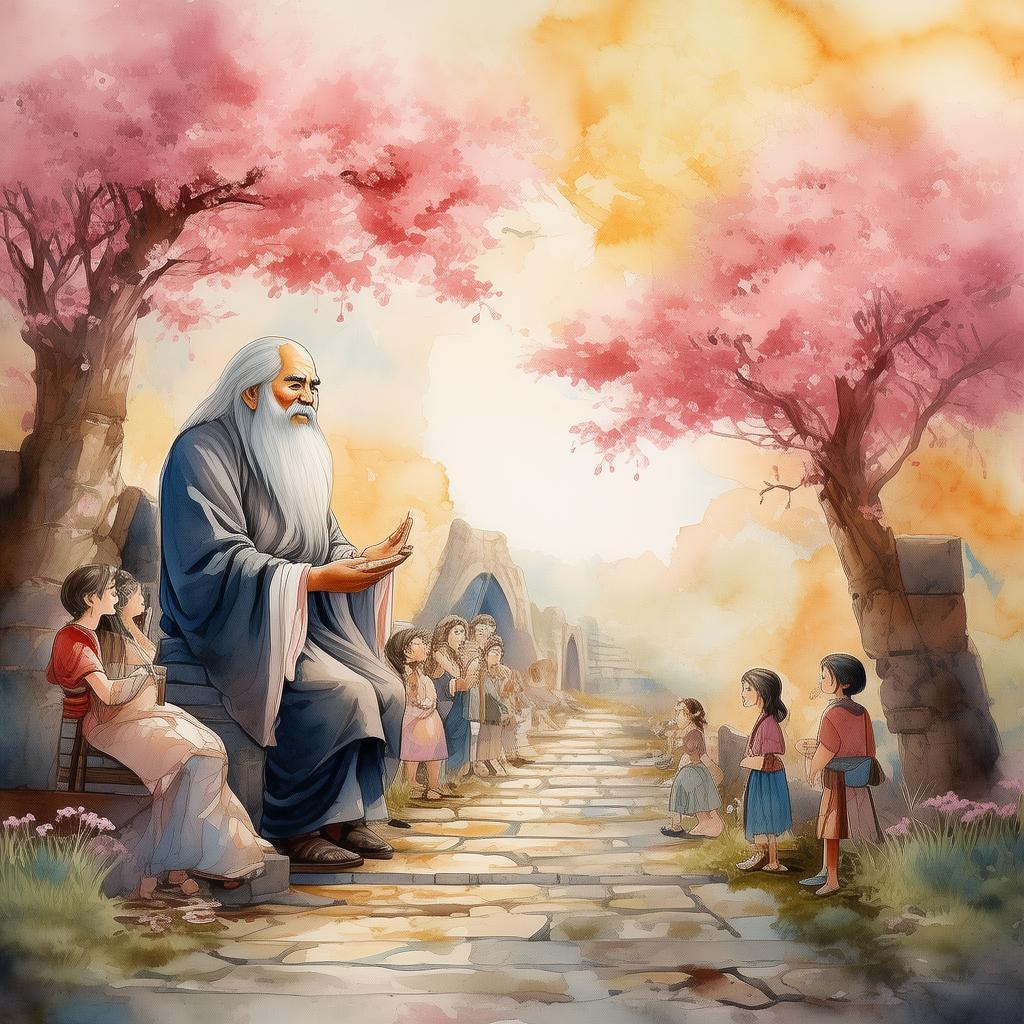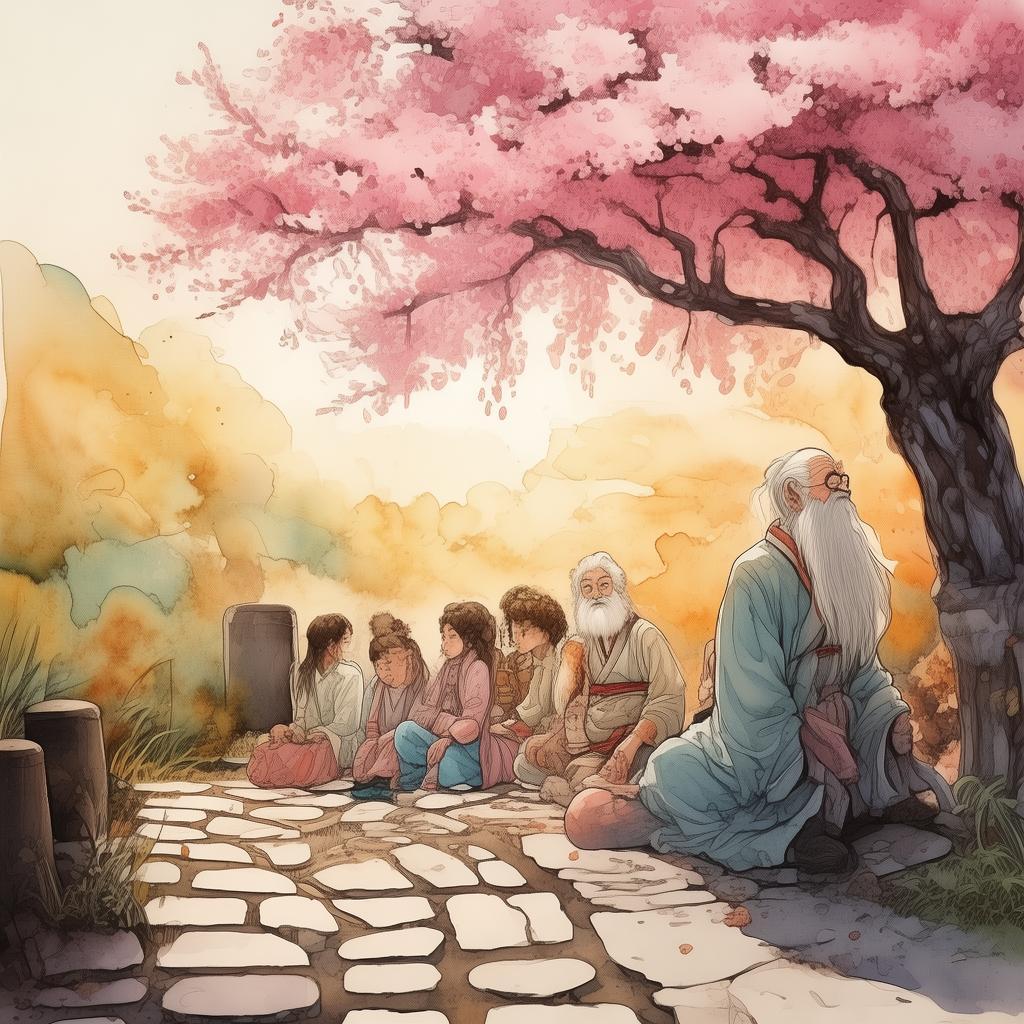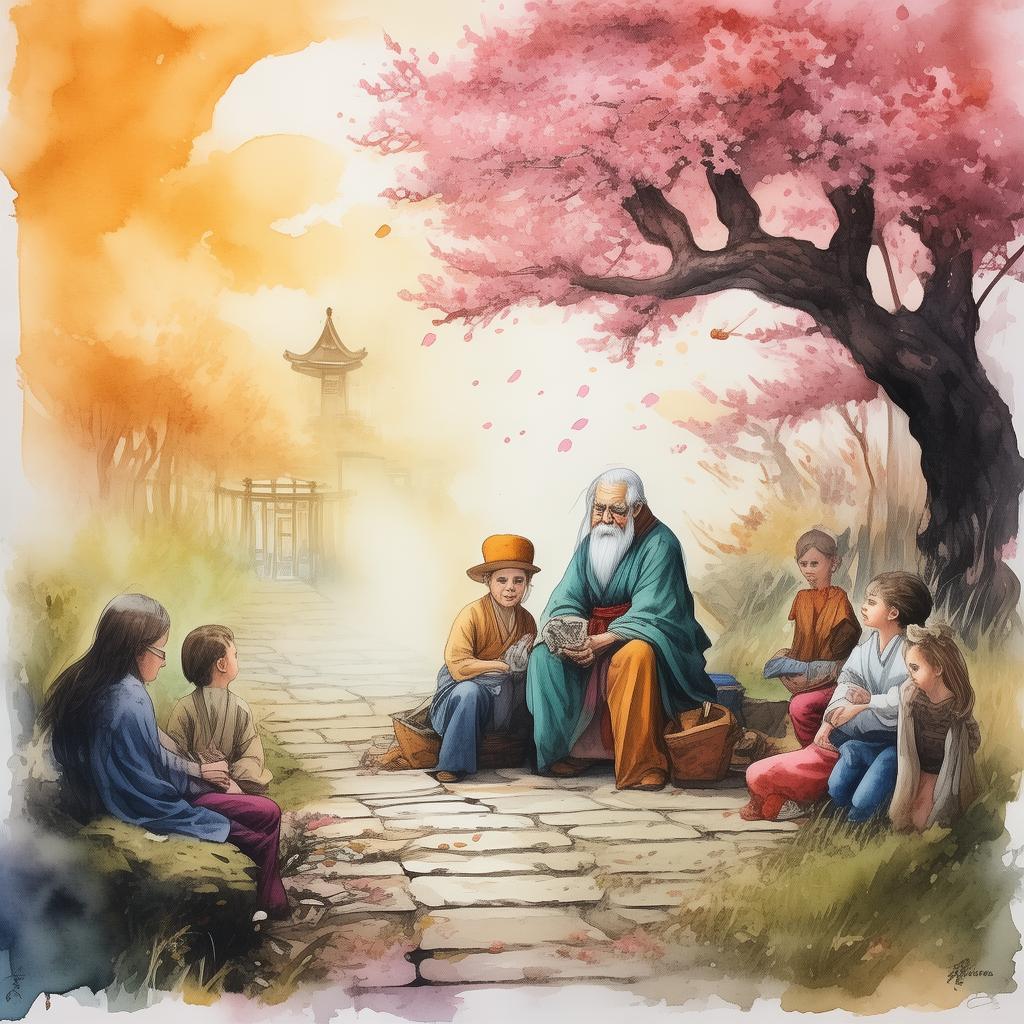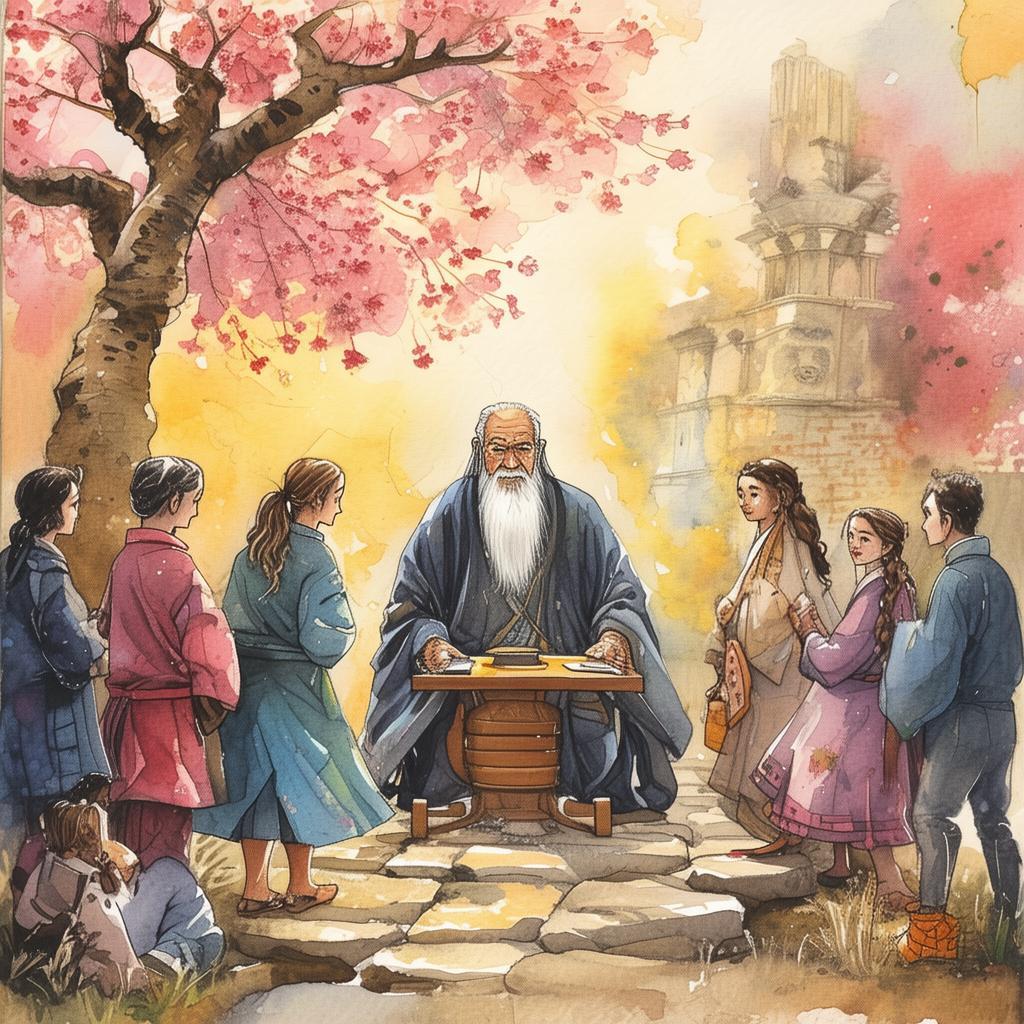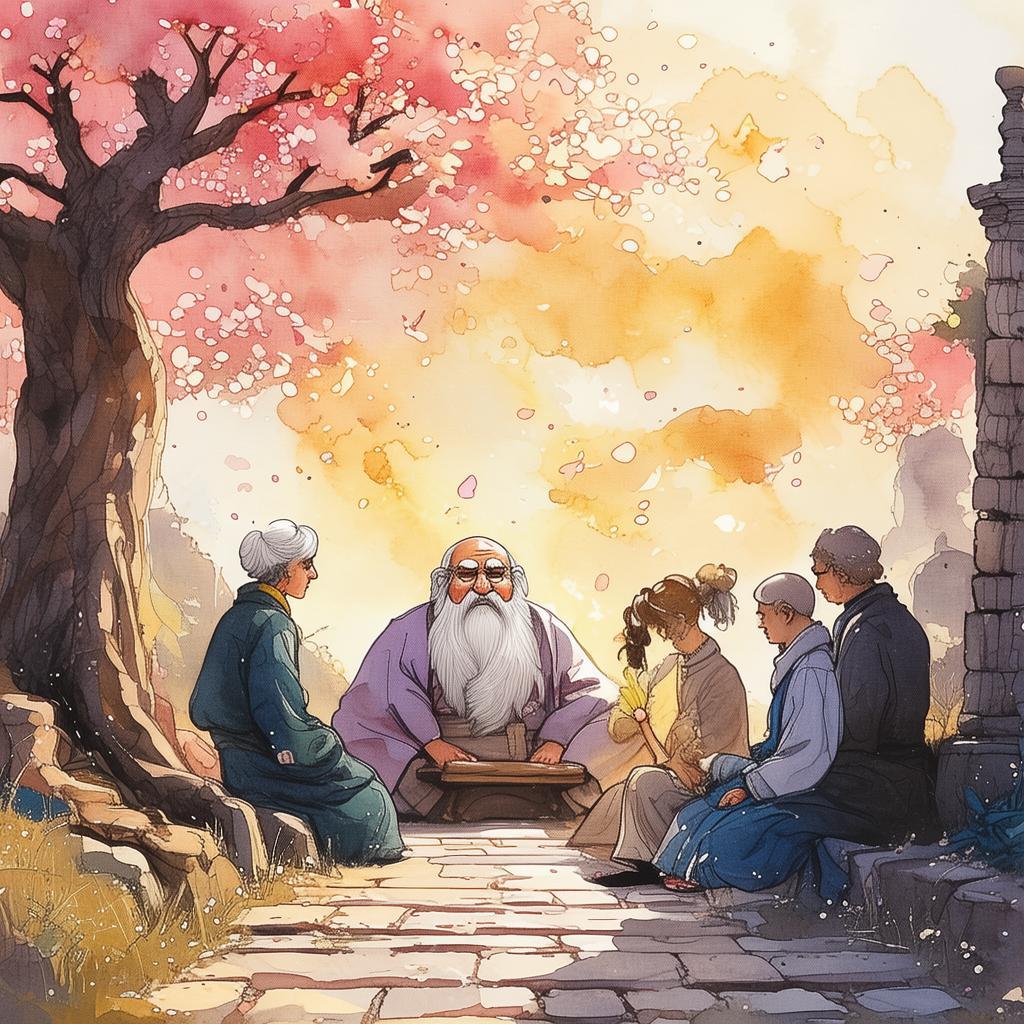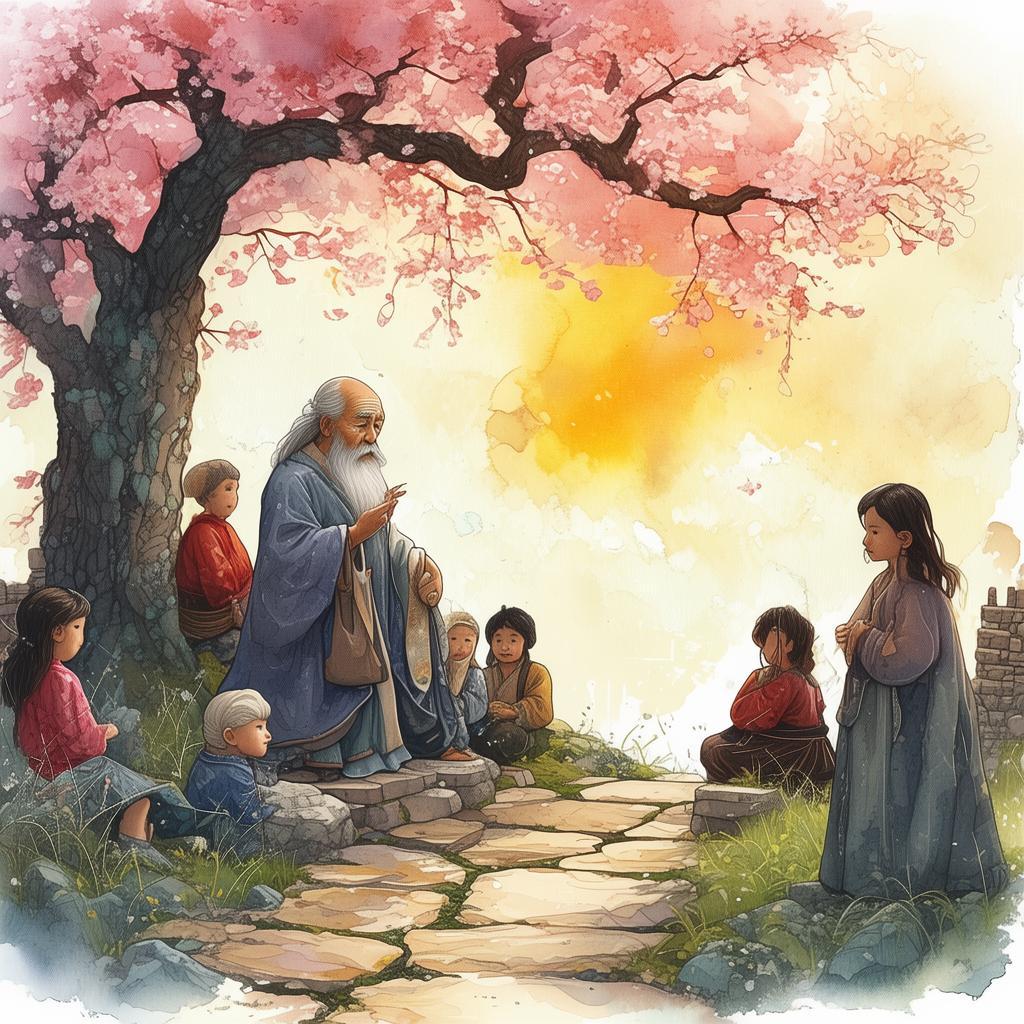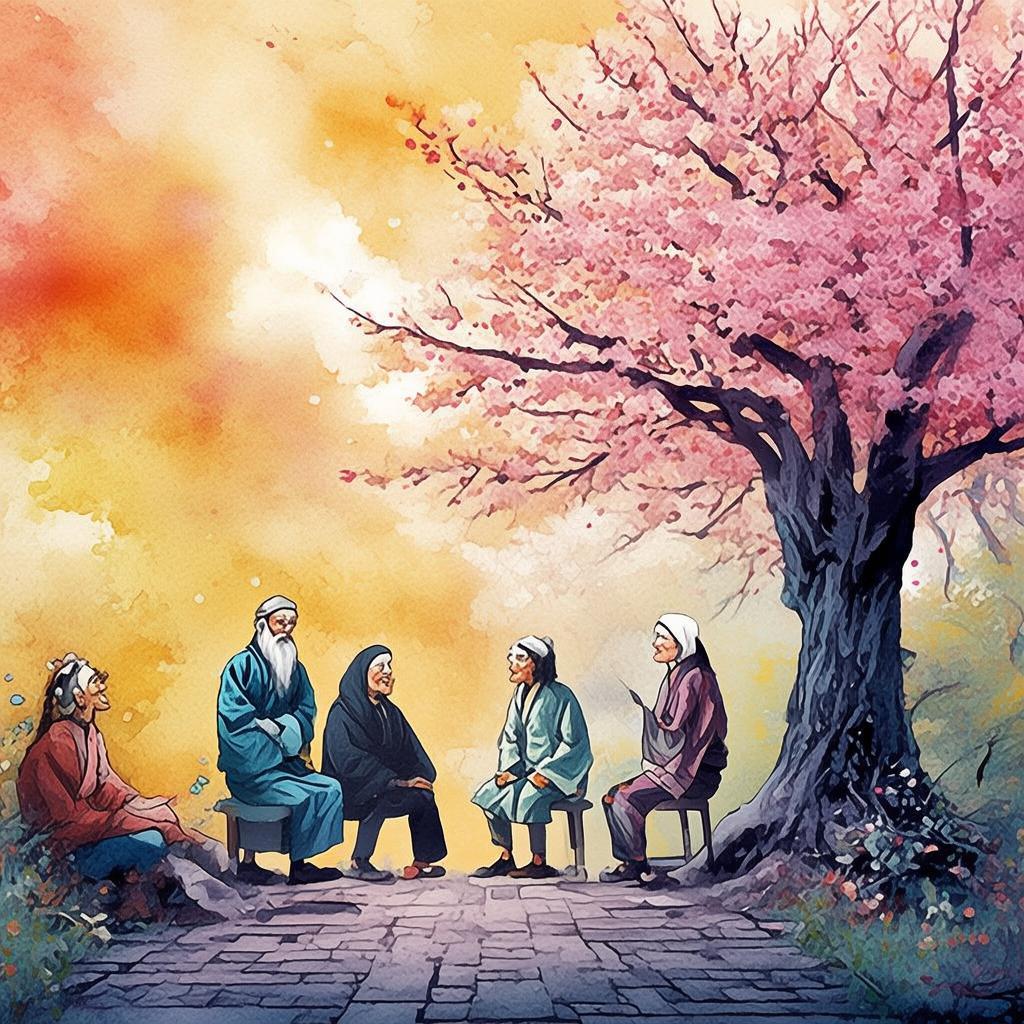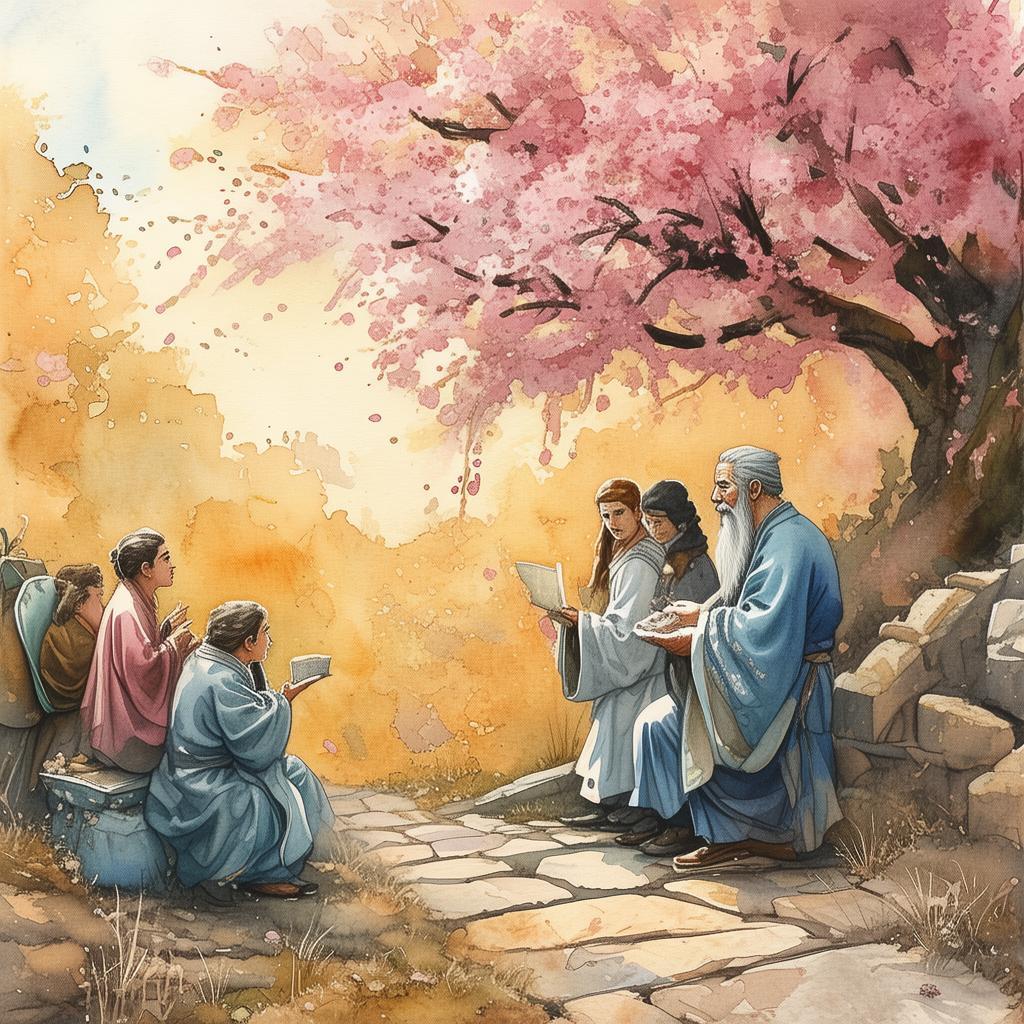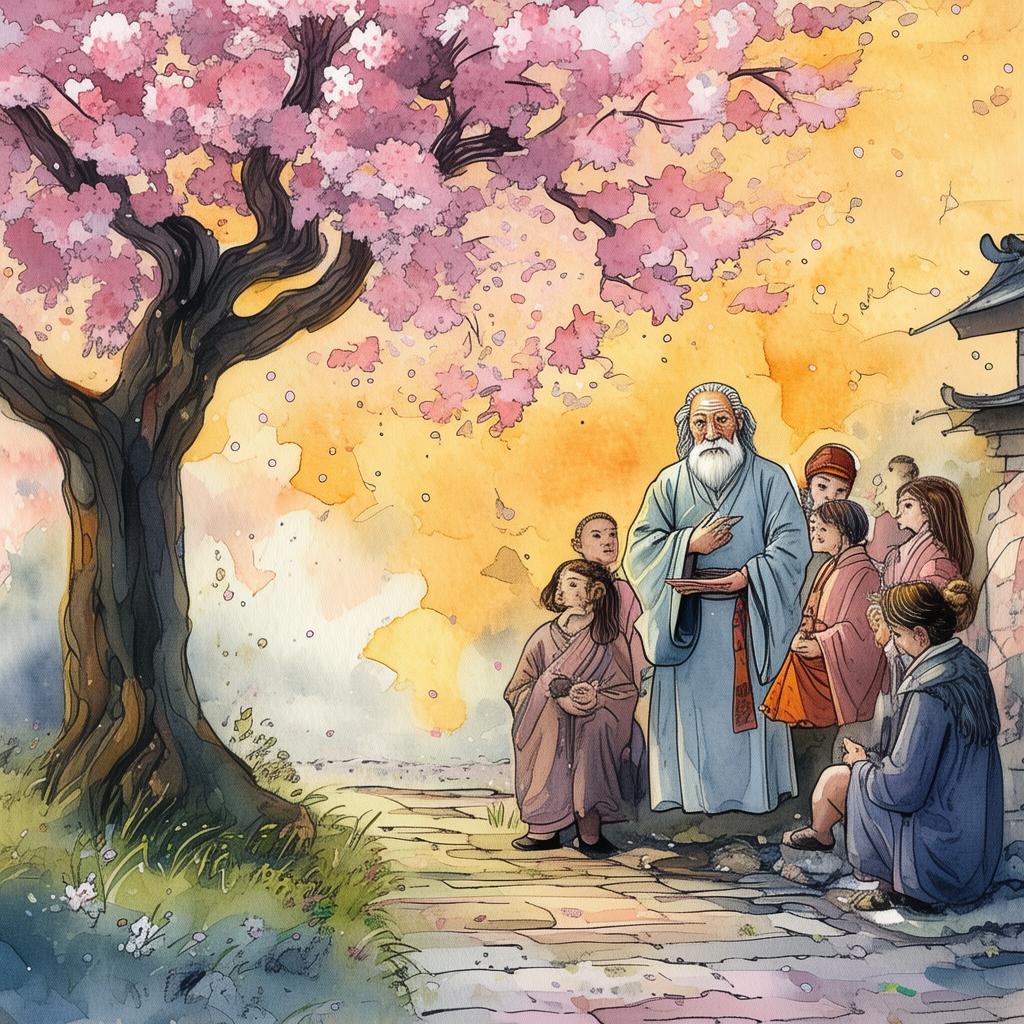The Unyielding Silk of Peace: A Tale of War Without Hatred
The sun dipped below the horizon, casting a golden glow over the tranquil village of Liang. The air was thick with the scent of blooming peonies and the distant hum of cicadas. Yet, the peace of the village was a fragile thing, hanging by the slender thread of an ancient tradition—silk diplomacy.
For centuries, Liang had been a bulwark of neutrality, its people bound by a sacred oath to never take up arms. Instead, they wove silk with their hands, a symbol of their commitment to peace. The finest silk in the land was produced here, a gift of diplomacy to neighboring kingdoms, a token of goodwill and a bridge between warring nations.
In the heart of the village stood the Great Weaving House, its walls adorned with tapestries of silk depicting the history of peace. It was here that the village elder, Master Li, presided over the annual silk festival. This year, however, the festival was shrouded in a shadow of impending war.
The Kingdom of Qin had been at loggerheads with the Kingdom of Wei for years, their borderlands a constant battleground. The people of Liang, with their tradition of silk diplomacy, had managed to maintain a fragile truce, but the tension was palpable. The elder, Master Li, knew that the time for diplomacy was fast running out.
"The silk must continue to flow," Master Li declared, his voice echoing through the Great Weaving House. "It is the only thing that can prevent the flames of war from engulfing our land."
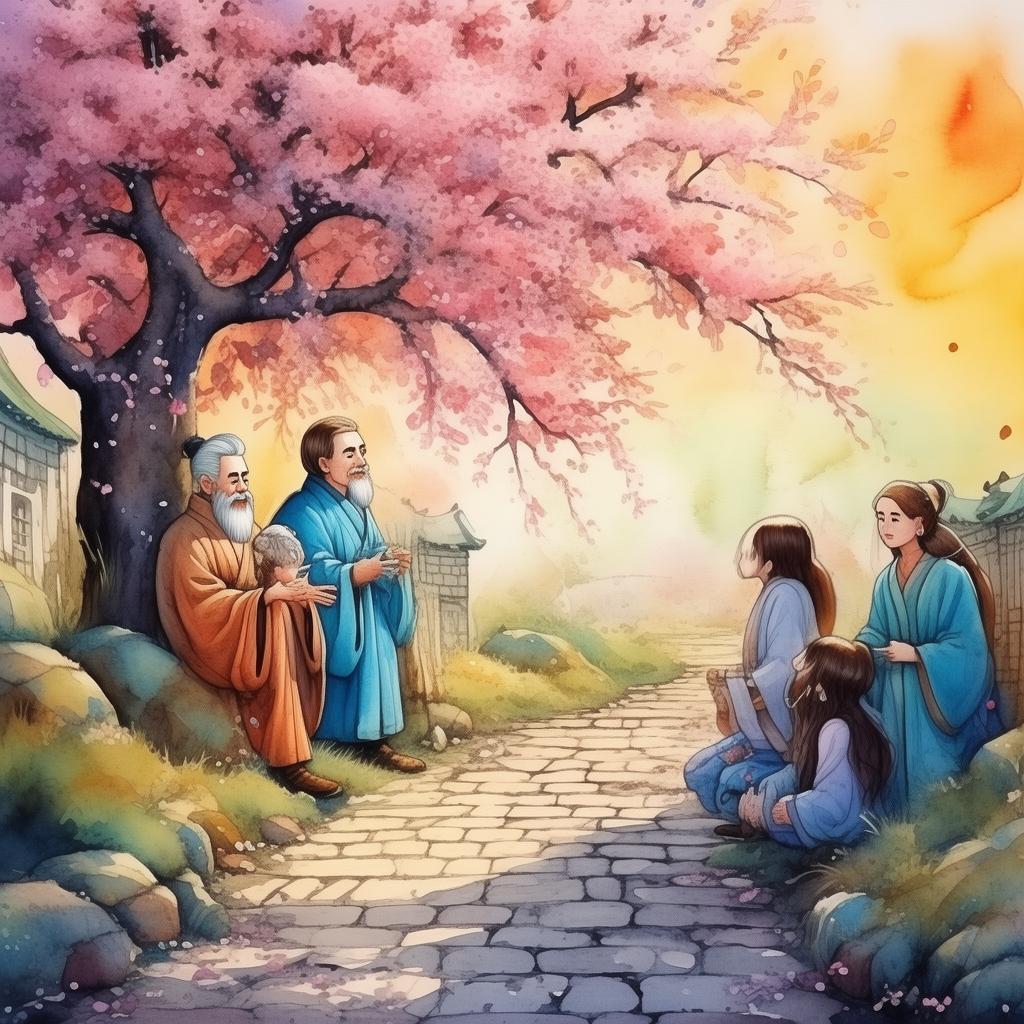
But the elder's words were met with skepticism. Among the weavers were two young people, Hua and Ming, whose hearts were heavy with the weight of their ancestors' oaths. Hua was a master weaver, her hands deftly handling the silk thread, while Ming was a young soldier, his hands calloused from battle.
"Is it enough to weave silk and hope for peace?" Ming asked, his voice tinged with bitterness. "The soldiers of Wei are on our borders, their eyes set on conquest."
Hua looked at Ming, her eyes filled with resolve. "We must trust in our ancestors' wisdom. Silk diplomacy is more than just a tradition; it is a promise made by our ancestors to protect this land from the ravages of war."
As the festival approached, the tension between the two kingdoms reached a breaking point. The King of Qin, a fierce warrior known for his unyielding spirit, demanded that the border be fortified, threatening to wage war if his demands were not met.
The village elder, Master Li, faced a daunting task. He had to find a way to keep the peace, to prove to the King of Qin that the people of Liang were more than just silk weavers. He turned to Hua and Ming, knowing they were the key to his plan.
"Your hands are the hands of peace," Master Li said, his eyes reflecting the weight of his words. "You must weave a silk tapestry that will speak louder than any sword or shield."
Hua and Ming set to work, their fingers dancing over the loom. They wove the tapestry with threads of gold, silver, and silk, each thread a symbol of the unyielding spirit of peace. The tapestry depicted the history of Liang, its people, and their commitment to silk diplomacy.
When the tapestry was completed, it was presented to the King of Qin. The king, a man of great power and pride, stood before the tapestry, his eyes reflecting the threads of history and the promise of peace.
"The people of Liang have shown great courage," the king said, his voice softening. "They have chosen the path of peace, and I, for one, will honor their commitment."
The king returned to his kingdom, the tapestry in hand, a symbol of the unyielding spirit of peace. The people of Liang celebrated, their joyous songs echoing through the village. The silk continued to flow, a testament to the power of diplomacy and the enduring legacy of their ancestors.
Hua and Ming stood side by side, their hands still calloused from the loom. They had woven more than just a tapestry; they had woven a future of peace, a future that would be passed down through generations.
And so, the village of Liang remained a bulwark of neutrality, its people bound by the unyielding thread of silk diplomacy. The Great Weaving House stood as a testament to their commitment, a symbol of peace in a world where war was ever-present.
In the end, it was the gentle touch of silk that had triumphed over the harshness of war, proving that sometimes, the most powerful weapon is the willingness to choose peace.
✨ Original Statement ✨
All articles published on this website (including but not limited to text, images, videos, and other content) are original or authorized for reposting and are protected by relevant laws. Without the explicit written permission of this website, no individual or organization may copy, modify, repost, or use the content for commercial purposes.
If you need to quote or cooperate, please contact this site for authorization. We reserve the right to pursue legal responsibility for any unauthorized use.
Hereby declared.
